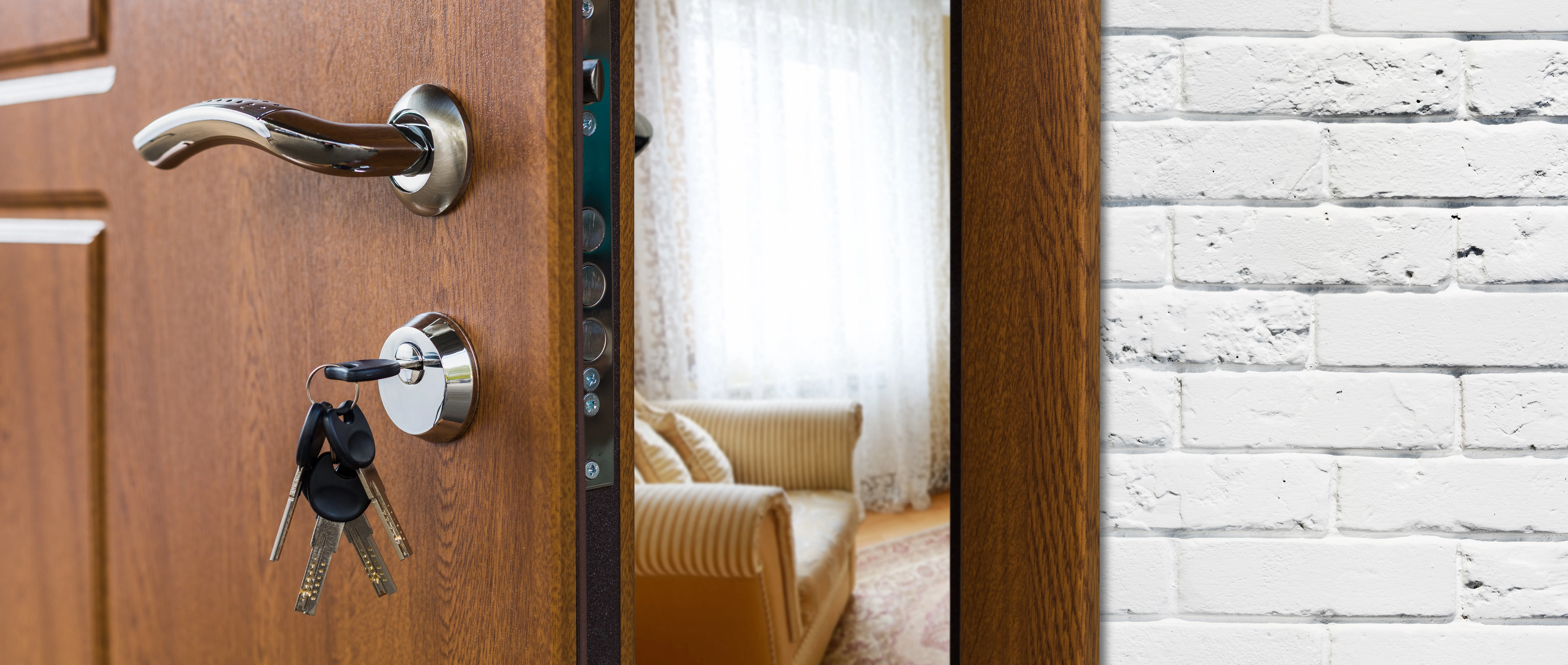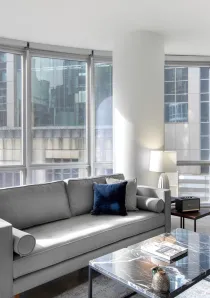Guide For Chicago Landlords Accessing Occupied Apartments
We at domu have been operating an apartment listing business for quite a while now, so naturally, we’ve gotten really good at knowing what type of information Chicago landlords and tenants search for the most. And, surprisingly, one of the primary topics of interest concerns the rules regarding access to apartments, with tenants naturally seeking to deny access as much as possible and landlords hoping to gain access with minimal delay. So we’ve taken it upon ourselves to provide some much needed guidance.
At the outset, it bears repeating (as always) that the CRLTO does not apply to every residential lease in Chicago, so if you find yourself in a knockdown drag-out dispute over access to the apartment, and tempers start flaring, first consult Section 5-12-020 to ensure that the dwelling unit falls within the scope of the ordinance before making any savage attempts to lay down the law with your adversary. If it turns out that your unit is exempt from the ordinance, then the law regarding access is essentially barren, and the terms of the lease will govern. Tenants in exempt properties should therefore exercise due care to ensure that the lease they’ve been asked to sign does not contain language granting the landlord the right to enter the apartment any time it feels like snooping around.
Assuming that your unit, like most Chicago dwelling units, is governed by the CRLTO, then we start by noting that Section 5-12-140 of the ordinance prohibits any rental agreement from requiring any party to “waive or forego [any] rights, remedies or obligations” enumerated therein, which essentially means that Section 5-12-050 of the CRLTO governing access supplants any language to the contrary contained in any residential lease. In other words, and for all intents and purposes, the following rules apply:
A tenant may not “unreasonably” withhold permission if the landlord seeks to enter the apartment in the following circumstances:
(a) to make necessary or agreed repairs, decorations, alterations, or improvements;
(b) to supply necessary or agreed services;
(c) to conduct inspections authorized or required by a government agency;
(d) to show the unit to prospective or actual purchasers, lenders, or contractors;
(e) to show the unit to prospective tenants within 60 days from the expiration of the lease;
(f) when repairs to other parts of the building “unexpectedly” and necessarily require access to the unit;
(g) to ensure that the tenant is complying with the lease; and
(h) in cases of emergency.
But wait. There’s more. Except when building repairs “unexpectedly” require access or some other emergency necessitates immediate entry, the landlord is required to provide no less than two days’ advance notice of its intention to enter the apartment, and any proposed entry between the hours of 8:00 AM and 8:00 PM is presumed to be reasonable. Notice may be given by telephone, mail, a letter slipped under (or posted on) the door, or any other “reasonable means designed in good faith” to reach the tenant. If access is required because of repair work for common facilities or other apartments, the landlord may issue a “general notice” to all potentially affected tenants. (We presume that a general notice, as opposed to a specific notice, is posted in a common area rather than delivered to each individual tenant, but the laws are strongly construed against landlords in the Windy City, so the safer course of action is to provide individual notice in all circumstances.)
In cases where building repairs unexpectedly require access, or when some other emergency demands immediate action, then no notice is required at all, and the landlord can theoretically enter during any of the 24 hours in the day, although we strongly advise landlords to practice the “knock and announce” method. In these instances, however, the landlord is required to notify the tenant within two days that it entered the unit.
Despite the many circumstances in which landlords are authorized to gain entry to an apartment (whether with or without notice), the CRLTO prohibits landlords from abusing its rights of access or using those rights to harass the tenant.
Key Takeaways: When Can Landlords Enter A Unit?
Access With Advance Notice
- The landlord is entitled to enter your apartment, upon 48 hours advance notice and between the hours of 8:00 AM and 8:00 PM, for the following purposes:
- making repairs or improvements
- permitting or effectuating government-mandated inspections
- exhibiting the premises to prospective purchasers of the property or, within the final 60 days of the term, exhibiting the premises to prospective new tenants
- ensuring compliance with lease
Access Without Advance Notice
- The landlord does not need to provide advance notice to enter your apartment (and may enter any time of the day or evening when:
- building repairs unexpectedly require access or when some other emergency necessitates immediate action
- If the apartment is accessed when the tenant is not present, the landlord must provide notice that it entered the unit within two days following such entry.
Now, at this point, it behooves us to share some war stories to ensure that landlords avoid costly mistakes.
When Accessing An Apartment, Assume You’re Being Watched
In one particularly nasty piece of litigation involving a luxury Lincoln Park apartment (we refrain from citing the case because the tenant was aggressively litigious and we don’t want to be next in line), the paranoid renter sprinkled tiny cameras liberally throughout the unit. So when one of the landlord’s employees entered to make a repair (upon proper notice and with full consent), he innocuously stopped and glanced at a magazine sitting on a desk because the glossy cover photograph of an attractive celebrity momentarily caught his attention. He lingered for no more than a few seconds and didn’t touch anything before heading over to fix the faulty junction box. But the tenant was spying on him remotely and later sued for invasion of privacy. Her ultimate objective was to be freed from the continuing burden of an expensive lease, and in Cook County you can file a paternity suit against the Pope, so the landlord, merely to avoid the cost of defense, ended up having to let her skate, with a full refund of the security deposit.
The Landlord Can Enter On Short Notice If The Tenant Consents
Although the CRLTO requires the landlord to provide no less than two days’ notice to enter in most situations, the tenant has no basis to complain if it grants permission on shorter notice. In White v. Kocmond, 2018 IL App (1st) 170878-U, the dispute undoubtedly originated with something petty, leading the tenants to retain counsel, so predictably their lawyer started snooping around for violations of the merciless security deposit provisions of the ordinance, and soon all-out warfare ensued. Their lawsuit not only sought damages for some presumably harmless violation of the security deposit rules, but also for violations of the access provisions of the ordinance. Here’s what happened: During happier times, the landlord’s real estate agent would text the renters to alert them that he would be showing the apartment to some prospective new tenants on the following afternoon (which was less than two days’ notice), but rather than deny permission to enter, the tenants would reply by saying things like “that’s fine, we’re out in the suburbs” or “no sweat, the dog will be there.” The trial court ruled in their favor because the landlord entered on less than 24 hours’ notice, but the appellate court reversed, finding that the tenants consented. Any good criminal lawyer will tell you that the Fourth Amendment doesn’t count for a hill of beans when police conduct a warrantless search if the suspect consents to the intrusion. (“Do you mind if we search your bag?” “Uh, okay.”) Well, the same principle applies here. If the landlord requests access to the unit in ten minutes and the tenant says, “Fine,” then the ordinance has not been violated.
If The Tenant Has Abandoned The Apartment, Any Claim For Violating The Access Provision Of The Ordinance Is Likely To Fail
In Salier v. Delta Real Estate Investments, 2023 IL App (1st) 181512-U, the tenants asked to be let out of their lease early, playing the “sick mother” card, but the landlord didn’t buy it (with the evidence ultimately vindicating its skepticism). The tenants weren’t willing to take no for an answer, however, so they skipped out early and took their chances. They subsequently sought advice from counsel, who promptly dragged the landlord into court based on alleged violations of the security deposit rules. (In case you haven’t noticed, it always starts this way.) The tenants’ attorney also felt the need to throw in a gratuitous claim for damages of one month’s rent plus attorneys’ fees because the landlord entered the unit without advance notice, even though nobody actually entered the apartment until after the tenants vacated. Fortunately (much as we hate to editorialize) the court rejected the access claim, recognizing that the tenants could not claim to have been damaged if the landlord didn’t enter the unit until after they left. (It helped that the tenants even agreed to having suffered no actual damage). In legal parlance, liability for violating the access provisions of the ordinance is not “strict.” The tenant needs to adduce at least some evidence of injury.
Remedies For Violations Of The Access Provisions Of The CRLTO Include The Right To Terminate The Lease, Monetary Damages, Injunctive Relief, And Attorneys’ Fees
So let’s wrap this up with a few words about the statutory remedies. In the event that either party that violates the access provisions of the CRLTO, the other party may terminate the lease. (That party should be very confident in its position, however, lest it wrongfully terminate and end up aggravating or complicating an already messy situation.) Or, if a lawsuit actually breaks out over something like this, then the ordinance authorizes the judge to enter what lawyers call “injunctive relief,” which means a court order either requiring the tenant to grant access to the landlord or requiring the landlord to stop unlawfully entering the unit. The judge may also award damages to the prevailing party, although, if the tenant is the one seeking relief, those damages may be the greater of one month’s rent or twice the actual damages sustained, so the law naturally favors the tenant. It’s not clear, though, how damages for access violations are computed.
In addition, the CRLTO provides that the “prevailing plaintiff” on a claim alleging a violation of the ordinance (but not a breach of the lease) is entitled to recover its attorneys’ fees, and in Shadid v. Sims, 2015 IL App (1st) 141973, the court held that a party who prevails on a counterclaim also qualifies as a “plaintiff” even if it technically started out as the defendant. As we interpret this, a landlord that merely defeats a tenant’s claim is not entitled to recover its fees and, instead, the landlord would need to prevail on a counterclaim in order to qualify for that recovery. We should also mention that the various decisions issued by the Illinois Appellate Court can be hard to reconcile, as a result of which landlords cannot ever be certain that their legal fees will be recoverable. The rulings can correctly be characterized as “ad hoc,” and the underlying facts are critical to the analysis. Tenants who appear to have acted contumaciously or in bad faith are more likely to be forced to pay fees if the landlord prevails, while more innocent violations of the ordinance are less likely to result in an award of fees in favor of the landlord.
In any event, if you ever find yourself in any type of landlord-tenant dispute, call a licensed Illinois practitioner. Don’t call Domu. We cannot dispense legal advice.




